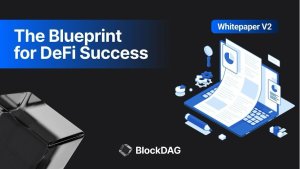Why are Tier 1 banks so afraid of direct FX counterparties? Bank of England gives first ever settlement account to non-bank firm
Today marks an absolute milestone in the method by which non-bank derivatives and settlement providers interact with the issuers of currency. Never mind the Tier 1 bank dealing desks, the central issuer of the world’s most valuable currency has just struck a direct deal with an FX provider. Ready for the future? This is what it could and should look like

In Central London, the Tier 1 interbank FX dealership heartlands of the entire world, something of a difficulty that has emanated from just one square mile of the world’s surface and created a liquidity crunch for the OTC derivatives industry globally has been omnipresent for approximately the last two years.
FX liquidity, which is the preserve of just a handful of large banks which maintain the largest market share – those being Citigroup, RBS, JPMorgan, Goldman Sachs, Deutsche Bank, HSBC, Credit Suisse and Societe Generale (not in any particular order except for Citigroup being the largest by far in terms of FX market share) – has become very scarce indeed and has created an environment in which a prime brokerage agreement has become an extremely difficult deal to close for many FX brokerages, large and small.
Not only that, but existing prime brokerage agreements are the subject of continual review by the banks, quite often because the audit and risk management departments of the Tier 1 dealers are always looking at how large a broker’s balance sheet is, $50 million to $100 million being usually the ballpark range that a brokerage or prime of prime brokerage needs to maintain in order to keep an existing prime brokerage relationship with a bank.
This has created more than a degree of nervousness among non-bank institutional liquidity providers, and understandably so. Indeed, so difficult is the maintenance of prime brokerage agreements between the Tier 1 bank and non-bank OTC derivatives business that only a handful of genuine prime of prime brokerages exist to this day.
Today, however, it is not a Tier 1 dealer that has shown its hand in full public light, demonstrating that modernity and the ability to fully encompass the electronic trading and vastly growing deliverable electronic FX industry that is also critical to London’s financial and technology epicenter is vital, but Britain’s very own central bank and issuer of the British Pound, the world’s most valuable major currency.
The Bank of England has today made a milestone step forward in actually disrupting the financial trading ecosystem by issuing a direct settlement agreement to Transferwise, which is an Estonian developed and UK-based peer-to-peer money transfer service launched in January 2011 by Kristo Käärmann and Taavet Hinrikus with headquarters in London and offices in a number of cities including Tallinn, New York and Singapore.
This direct settlement agreement represents the very first of its kind globally, with Transferwise now positioning itself as the first non-bank payment service provider to be granted a settlement account with the Bank of England’s Real Time Gross Settlement (RTGS) system.
The Bank of England opened up its RTGS system to applications from non-banks last summer, and it’s a sign of the health of London’s fintech scene that Transferwise has taken advantage of this, and considering that the Bank of England has garnered the rather unflattering term ‘The Old Lady of Threadneedle Street”, this development paves the way for further direct settlement agreements and places the Bank of England as a major innovator and perhaps a provider of a solution to the current nervousness displayed by traditional dealers, bearing in mind that this is a route direct to the issuer.
Settlement costs, clearing costs and trade reporting bureaucracy are three tenets of current concern in London, and most certainly among market participants that have any reason to interact with MiFID II compliant European regulated marketplaces, OTFs or OTC derivatives brokerages. By establishing a direct settlement route, the Bank of England is paving the way to reduce costs, and whilst TransferWise is a deliverable FX provider, the principle by which it interacts with the Bank of England would be similar to that of an institutional FX firm.
Sucden Financial, for example has an eFX division which provides liquidity to non-bank retail FX firms, and the company also has a deliverable FX division operated from within the same offices, hence there is no reason why companies like Sucden Financial cannot strike up direct RTGS relationships with the Bank of England, this being an example of how potential relationships between the Bank of England and the OTC world right down to retail brokerages could be structured.
Once again, London’s pioneering mettle is shown and whilst the mainstream press this morning in the City views moves like this as Brexit-orientated disparity, FinanceFeeds views it as a potential solution to the European Union’s current MiFID II driven clampdown on leveraged products, and therefore a route that British firms should pursue.









